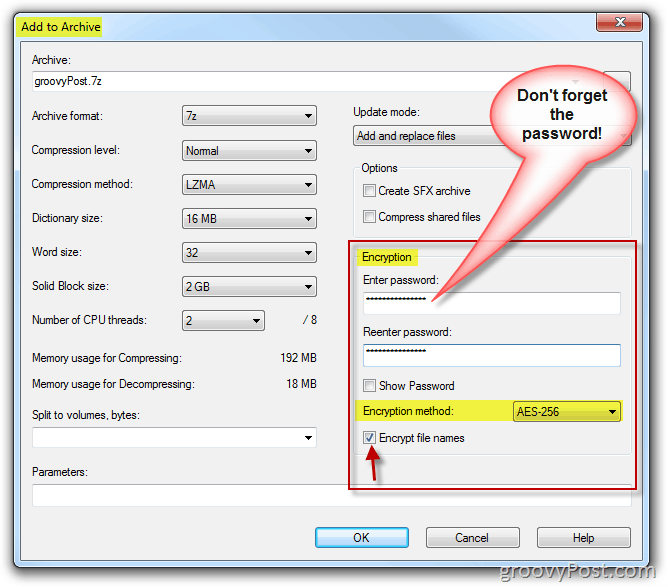Generate Aes 256 Key Python
- For this tutorial, we will be using Python 3, so make sure you install pycryptodome, which will give us access to an implementation of AES-256: pip3 install pycryptodomex Padding – Handled by GCM. AES-256 typically requires that the data to be encrypted is supplied in 16-byte blocks, and you may have seen that on other sites or tutorials.
- Generating AES-256 Private Key from user string. Ask Question Asked 1 year, 11. $begingroup$ So I wish to encrypt a string using AES-256 and want to provide the user to specify the password for unlocking the string. I plan to use sha-256 to hash to users entered password and use this as the key. What do Python's pandas/matplotlib.
- How To Generate Aes Key
- Generate Aes 256 Key Python Download
- Generate Aes 256 Key Python Free
- Generate Aes 256 Key Python Code
- Generate Aes 256 Key Java
- C# Aes Generate Key
Using Python for Encryption Dic 04, 2018. 24-, or 32-bytes-long keys for AES-128, AES-196, and AES-256, respectively. Also, for AES encryption using pycrypto, you need to ensure that the data is a multiple of 16 bytes in length. Pad the buffer if it is not and include the size of the data at the beginning of the output, so the receiver can.
Encrypt & Decrypt using PyCrypto AES 256 (6)
Another take on this (heavily derived from solutions above) but
- uses null for padding
- does not use lambda (never been a fan)
tested with python 2.7 and 3.6.5
I'm trying to build two functions using PyCrypto that accept two parameters: the message and the key, and then encrypt/decrypt the message.
I found several links on the web to help me out, but each one of them has flaws: Monster hunter generations ultimate hr2 key quests.
This one at codekoala uses os.urandom, which is discouraged by PyCrypto.

Moreover, the key I give to the function is not guaranteed to have the exact length expected. What can I do to make that happen ?
How To Generate Aes Key
Also, there are several modes, which one is recommended? I don't know what to use :/
Finally, what exactly is the IV? Can I provide a different IV for encrypting and decrypting, or will this return in a different result?
Here's what I've done so far:
Generate Aes 256 Key Python Download
For someone who would like to use urlsafe_b64encode and urlsafe_b64decode, here are the version that're working for me (after spending some time with the unicode issue)
Generate Aes 256 Key Python Free
Generate Aes 256 Key Python Code
| #!/usr/bin/env python |
| importbase64 |
| fromCryptoimportRandom |
| fromCrypto.CipherimportAES |
| BS=16 |
| pad=lambdas: s+ (BS-len(s) %BS) *chr(BS-len(s) %BS) |
| unpad=lambdas : s[0:-ord(s[-1])] |
| classAESCipher: |
| def__init__( self, key ): |
| self.key=key |
| defencrypt( self, raw ): |
| raw=pad(raw) |
| iv=Random.new().read( AES.block_size ) |
| cipher=AES.new( self.key, AES.MODE_CBC, iv ) |
| returnbase64.b64encode( iv+cipher.encrypt( raw ) ) |
| defdecrypt( self, enc ): |
| enc=base64.b64decode(enc) |
| iv=enc[:16] |
| cipher=AES.new(self.key, AES.MODE_CBC, iv ) |
| returnunpad(cipher.decrypt( enc[16:] )) |
| cipher=AESCipher('mysecretpassword') |
| encrypted=cipher.encrypt('Secret Message A') |
| decrypted=cipher.decrypt(encrypted) |
| printencrypted |
| printdecrypted |
commented Jan 13, 2014
AWESOMESAUCE. |
commented Sep 16, 2016
This only works because the 'mysecretpassword' is 16 bytes. If it were a different (not dividable by 16) amount of bytes you'd get |
commented Dec 22, 2016
Generate Aes 256 Key Java
Very minor changes to make it python 3 compatible https://gist.github.com/mguezuraga/257a662a51dcde53a267e838e4d387cd |
C# Aes Generate Key
commented Dec 19, 2017 • edited
edited
lambda removed(pep 8 support) |
commented Jan 20, 2018 • edited
edited
In Python 3 using the modifications of Craz1k0ek it still doesn't work with Unicode. For example the input Edit: found a working version: https://stackoverflow.com/a/44212550 |
commented Apr 26, 2018
i think this is aes 128, we have a standard blocksize of 16 bytes (128bit) |
commented Apr 26, 2018
i can't seem to find how to do aes256 |
commented Jun 5, 2018
Please provide the JAVA code equivalent to above which is in python. |